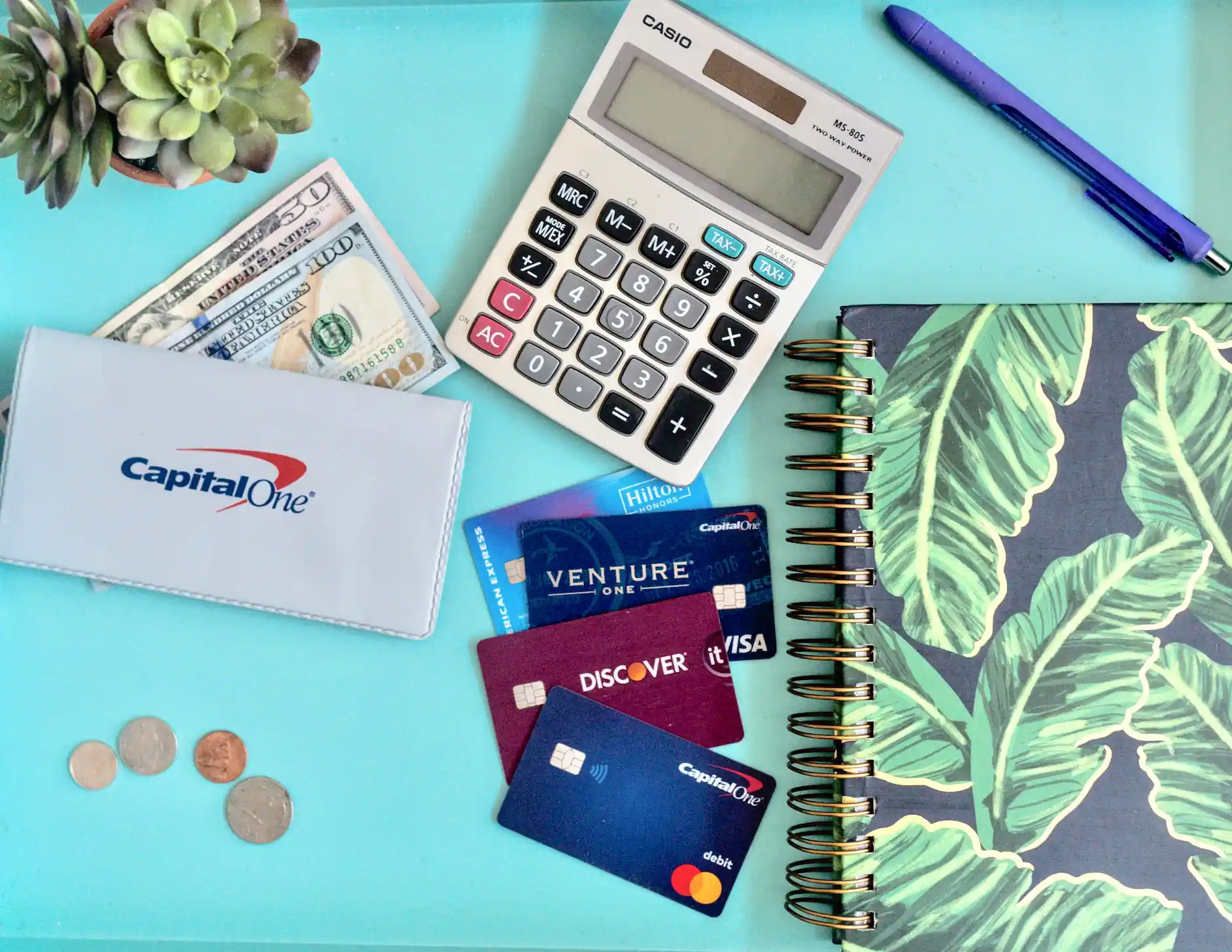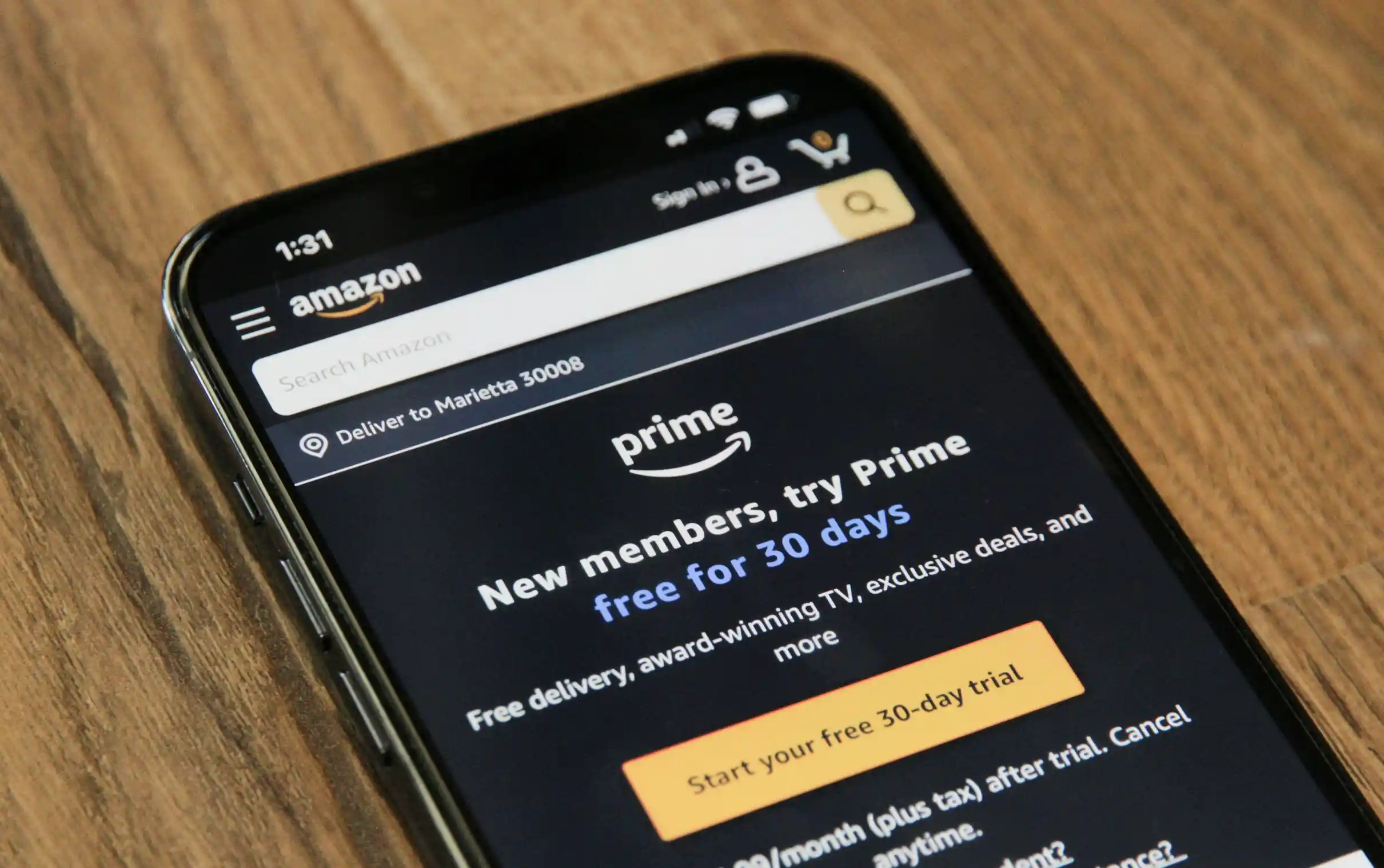This post contains affiliate links. If a purchase is made by clicking on a link, I will get a small commission at no extra cost to you.
Sign up for Robinhood with my link and we'll both pick our own gift stock 🎁The free stock value ranges from $5 to $200!

If you've been thinking about getting into investing but feel intimidated by all the jargon and complexity (like me!), you might want to check out Robinhood. This app has been a game-changer for many novice investors, making the stock market accessible to just about anyone with a smartphone. Here's a comprehensive rundown of what Robinhood is all about and what you should know before diving in.
What is Robinhood?
Robinhood is a commission-free trading app that lets you buy and sell stocks, ETFs, options, and even cryptocurrencies. Robinhood launched in 2013, and ever since has made headlines for disrupting the traditional brokerage model, which often involves hefty fees and a more complicated setup.
According to their website, the company’s mission is to “democratize finance for all - and the goal of our Environmental, Social & Governance (ESG) program is to help build a company you can be proud to invest with. Every day, we work to build products that create a more equitable world - for our customers, employees, and society as a whole.”
The great thing about Robinhood is that there are no minimum account balance requirements and no fees for trades, it’s lowered the barrier to entry for many people who might have been deterred by the costs associated with traditional brokerage accounts.
Why is Robinhood Popular?
No Commissions
One of the biggest draws is that you can trade without paying a commission. This means more of your money goes directly into your investments instead of being eaten up by fees. Traditional brokerages often charge between $5 and $10 per trade, which can add up quickly, especially for those who trade frequently.
Stock Investment for Anyone and Everyone
The app is designed to be intuitive, even if you have no prior experience with investing. It’s easy to sign up, link your bank account, and start trading within minutes. The app’s design focuses on simplicity, with clear, straightforward options for buying and selling stocks. There's no need to wade through complicated forms or interfaces, making it appealing for those new to investing. This is not your Grandfather’s stock broker! Its user-friendly interface and zero-fee model have attracted a huge following, especially among younger investors. Fun fact: of the 10.3 million active users, ⅓ of them are women!
Fractional Shares
Robinhood allows you to buy fractional shares, which means you can invest in expensive stocks like Amazon or Google without having to purchase a whole share. You can put in as little as $1 and still own a part of the stock. This feature is particularly beneficial for investors with limited capital, enabling them to build a diversified portfolio without needing significant funds upfront. I buy fractional shares for this very reason. Check out my blog post on 8 Simple Ways to Save $10,000 in 6 Months where I talk about investing with Robinhood.
Access to Cryptocurrencies
Besides stocks, you can also trade popular cryptocurrencies like Bitcoin and Ethereum, all within the same app. This inclusion has broadened Robinhood's appeal, attracting those interested in the burgeoning crypto market without needing a separate account or platform.
What Types of Stocks are Popular on Robinhood?
Robinhood investors, often dubbed "Robinhoodies," have been known to favor a mix of high-growth tech stocks, meme stocks, and well-known blue-chip companies. Here are a few categories of stocks that tend to be popular:
1. Tech Stocks
Companies like Apple, Amazon, Tesla, and Microsoft are perennial favorites. These stocks are often seen as having strong growth potential and a solid track record. For instance, Apple’s consistent innovation and massive global market presence make it a staple in many portfolios. Tesla, with its cutting-edge electric vehicles and charismatic CEO, Elon Musk, also garners significant attention and investment.
2. Meme Stocks
Think GameStop and AMC. These stocks gained fame (or infamy) due to social media-driven buying frenzies. Platforms like Reddit, specifically the r/wallstreetbets forum, played a crucial role in driving massive retail investor interest in these stocks. While they can be highly volatile, they’ve also provided significant returns for those who timed their investments well. However, the hype can also lead to significant losses if the market turns.
3. Blue-Chip Stocks
These are well-established companies with a history of reliable performance. Examples include Coca-Cola, Johnson & Johnson, and Procter & Gamble. They might not have the explosive growth potential of tech stocks, but they are generally considered safer bets. Blue-chip stocks are often seen as a foundational element of a stable investment portfolio, providing steady growth and dividends.
Things to Keep in Mind
While Robinhood has opened the doors to investing for many, there are some important considerations to keep in mind:
1. Volatility
Stocks, especially the trendy ones (look at Game Stop for example), can be very volatile. Prices can soar or plummet in a short time. It's essential to be prepared for this roller-coaster ride and not to invest money you can't afford to lose. For instance, meme stocks can see dramatic price swings in a single trading day, influenced by social media trends rather than company fundamentals.
2. Research
Even though Robinhood makes trading easy, it's crucial to do your homework. Look into the companies you're interested in, understand their business models, and check their financial health. Relying solely on trends or tips from social media can be risky. Use resources like financial news, company earnings reports, and analyst reviews to make informed decisions.
3. Diversification
Don’t put all your eggs in one basket. Diversifying your portfolio can help mitigate risk. This means spreading your investments across different sectors and types of assets. For example, mixing tech stocks with healthcare, consumer goods, and industrials can protect your portfolio against sector-specific downturns.
4. Long Game
While it can be tempting to chase quick gains, remember that investing is often about the long game. Holding onto your investments and allowing them to grow over time can be more rewarding than trying to time the market. Historical data shows that the stock market tends to grow over the long term, despite short-term volatility.
5. Educational Tools
Robinhood offers various educational tools and resources to help you understand investing better. Take advantage of these resources. Learn about different investment strategies, risk management, and the basics of financial markets. The more informed you are, the better decisions you can make.
Criticisms
While Robinhood has its advantages, it's not without criticisms:
1. Gamification of Trading
Critics argue that Robinhood’s interface, with its confetti animations and game-like features, can make trading feel more like a game than a serious financial activity. This can lead to impulsive trading behaviors and significant financial losses.
2. Outages
The platform has experienced several high-profile outages, sometimes during critical market movements, leaving users unable to execute trades. These outages have led to frustration and financial losses for some users.
3. Order Flow Payments
Robinhood makes money by selling its order flow to high-frequency trading firms. This practice has raised questions about potential conflicts of interest and whether users are getting the best possible execution prices for their trades.
4. Regulatory Scrutiny
Robinhood has faced scrutiny from regulators regarding its marketing practices, disclosure of risks, and handling of user complaints. It has also been fined for misleading customers about how it makes money and how it executes trades.
Final Thoughts
Robinhood has democratized investing, allowing more people to participate in the stock market than ever before. Whether you're looking to buy into the latest tech trend, ride the wave of a meme stock, or invest in solid, reliable companies, Robinhood provides the tools to do so with ease.
However, with great power comes great responsibility. Make sure to educate yourself, stay informed, and approach investing with a strategy that aligns with your financial goals. The stock market can be a powerful tool for building wealth, but it requires careful planning, patience, and a willingness to learn.
As you embark on your investing journey with Robinhood, keep these tips in mind, stay disciplined, and remember that every investment decision should be part of a broader, well-thought-out financial plan. Happy investing!
Sign up for Robinhood with my link and we'll both pick our own gift stock 🎁The free stock value ranges from $5 to $200.
.jpeg)









